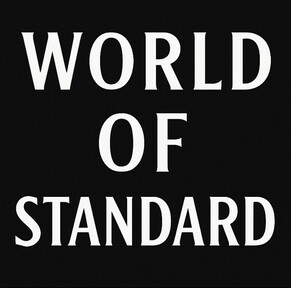Case study: Socially Responsible Protectionism – An Opportunity for the Western Balkans
21.05.2025Globalization in recent decades has led to an accelerated flow of goods and capital, but also to major imbalances. Increasingly, the question arises: can we envision a different kind of socially responsible protectionism—one that does not mean isolation, but rather the protection of the local economy, legal security, environmental standards, and labor rights. Such an approach is particularly relevant for small economies, such as those in Southeast Europe. Instead of fully closing off their markets, modern protectionism seeks to correct the injustices of the global market and create a framework in which domestic companies can thrive, while foreign investors who share the same values are welcomed.
Protectionism without Isolation: Safeguarding, Not Shutting Down
Traditionally, protectionism has been associated with high tariffs and economic isolation. However, modern protectionism does not necessarily mean turning away from the world. On the contrary, it can serve as a tool to establish fair business conditions and protect societal interests. Through socially responsible protectionism, the state aims to:
Protect the local economy from unfair competition:
One example is the introduction of quality or safety standards that apply equally to both domestic and foreign products. This prevents cheap, low-quality goods from undermining local producers. Such measures are not classical trade barriers, but rather a way to ensure a level playing field.
Preserve labor rights and working standards:
The state can require that all investors respect minimum labor standards and workers’ rights. This protects the domestic workforce from exploitation and prevents a “race to the bottom” where competitiveness is achieved at the expense of labor rights.
Enhance legal certainty:
By strengthening the rule of law and ensuring transparent regulations, the state protects both domestic businesses and responsible foreign investors. Legal certainty means that the rules of the game apply equally to all—preventing large players from exploiting legal loopholes to the detriment of smaller ones.
Raise environmental standards:
By imposing high environmental standards (e.g., limits on pollution, waste regulations), the state can protect public health and nature. At the same time, it encourages a green transition—domestic companies investing in clean technologies gain a competitive edge, while investors bringing polluting technologies are discouraged.
This type of protectionism does not imply autarky. On the contrary, it still welcomes trade and investment—but under conditions that safeguard society and the environment. In this way, the state acts like an economic shield—allowing in opportunities that foster sustainable development, while rejecting those that could harm the community in the long run.
Lessons from Europe: Social and Environmental Protectionism
In European political circles, “social and environmental protectionism” is increasingly being considered as a legitimate response to the asymmetries of the global market. The reason is clear: many countries are realizing that fully free trade often favors those who disregard standards. Western economies have promoted liberalization for decades, while at the same time heavily subsidizing their own agriculture and industry. These double standards have led to widespread dissatisfaction and a perception that global trade rules are not equally applied to all.
A turning point occurred in the late 1990s. At the World Trade Organization Ministerial Conference in Seattle in 1999, a diverse coalition of trade unions, environmental activists, Indigenous organizations, and other groups—around 50,000 people—gathered and blocked the city for four days. These protests, known as the “Battle of Seattle,” brought together the so-called “teamsters and turtles” (workers and environmentalists) in a united call for a fairer trade system. The demonstrators made it clear that they were advocating for trade not driven solely by profit and the power of the strong, but for a system grounded in environmental protection and improved labor conditions. That event became a historic blow to neoliberal globalization—the Seattle negotiations collapsed, and the momentum of unchecked liberalization was halted.
However, in the decades that followed, globalization continued—albeit along a different path. Instead of large multilateral agreements that could provoke mass protests, trade liberalization was carried out more quietly through numerous bilateral and regional deals. The European Union, for instance, concluded free trade agreements with South Korea, Japan, Vietnam, New Zealand, and many other countries. As a result, global trade continued to expand—often without sufficient public oversight.
In recent years, however, awareness has grown in Europe that unlimited free trade comes at a cost. The COVID-19 pandemic exposed the vulnerability of supply chains; the war in Ukraine and rising geopolitical tensions raised concerns about dependency on imports of key raw materials and products. At the same time, the climate crisis has made the environmental costs of the existing model increasingly evident. Protectionism, once a taboo, is becoming more acceptable even in mainstream policy circles. The EU is already introducing the Carbon Border Adjustment Mechanism to level the playing field between domestic producers burdened by environmental regulations and foreign competitors from countries with looser standards. Broader implementation of social clauses is also being considered—limiting market access for products and investors that fail to respect fundamental workers’ rights or contribute to “social dumping.”
In France, for example, political movements are advocating for Europe to abandon the doctrine of radically free trade and introduce “social and environmental tariffs” at its borders to protect industry, workers, and the environment from unfair competition. In other words, they propose that the EU should only enter trade agreements with countries that respect minimum standards (such as the Paris Climate Agreement and International Labour Organization conventions), and impose special duties on imports from countries that violate these standards. This concept, which until recently seemed radical, is gaining legitimacy in public discourse. Europe is thus recognizing that protecting social and environmental values can be a justified reason for market intervention.
It is important to emphasize: this form of protectionism is not aimed against international cooperation. On the contrary, it is an attempt to tame globalization and make it fairer. The idea is to reduce the distance between the place of production and the place of consumption wherever reasonably possible—for democratic, social, and environmental reasons. Instead of an economic system that floods the planet with cheap, low-quality, short-lived goods, more and more actors in Europe are advocating for more localized and sustainable production. “Altruistic protectionism”—as promoted by the alter-globalization movement a quarter-century ago—is reemerging as a relevant option. It is a form of protectionism not designed to benefit one nation at the expense of another, but to uphold universal values: dignified labor, a clean environment, and healthy market competition.
The Western Balkans Facing Market Asymmetries
For the countries of the Western Balkans, including Bosnia and Herzegovina, finding the right balance between openness and protecting the domestic economy is a particularly delicate issue. These economies are relatively small and fragile, yet also highly open—both due to a desire to attract foreign investment and because of efforts to integrate into the broader European market. The consequences of uncontrolled liberalization can be serious: deindustrialization, job losses, and increased import dependency. The example of the United States shows how rapid globalization can devastate local industry: following the signing of the NAFTA agreement, more than 90,000 factories closed in the U.S.—an average of eight per day—while the number of billionaires increased, accompanied by growing inequality. If such effects are possible in a large economy, imagine the pressure on much smaller economies in the Balkans.
Countries in the region often face asymmetric trade relationships. For instance, farmers in Bosnia and Herzegovina have long complained about the uncontrolled import of subsidized food from the EU and neighboring countries, while at the same time, those neighboring countries maintain barriers against Bosnian exports. Back in 2009, the Bosnian government attempted to introduce protective tariffs on around 1,000 agricultural products to support local producers, but the law was soon overturned on the grounds that it violated the CEFTA regional agreement and commitments made to the EU. Bosnian farmers protested in front of the court, claiming they were subjected to unfair competition—neighbors were taxing Bosnian goods, while their own products entered Bosnia duty-free. This case illustrates the dilemma the region faces: how to protect a developing economy while still respecting the commitments to free trade?
The answer may lie in the concept of socially responsible protectionism tailored to the local context. This means implementing smart policies that align with international rules but take advantage of the flexibility that exists to support domestic development. Some of these measures could include:
Targeted fiscal incentives and subsidies:
Governments can support strategic sectors (e.g., agriculture, renewable energy, IT) through tax policy and subsidies—especially those with growth potential or high social relevance. These measures should be transparent and accessible to all companies that meet set criteria (e.g., job creation, exports, innovation), to avoid favoritism and rent-seeking.
Regulatory measures to uphold standards:
States can introduce standards that apply equally to all goods and services on the market—such as food quality standards, product safety, and environmental norms in industry. While such regulations apply to both domestic and imported products, they effectively protect local producers who already comply with these rules, filtering out imported products that fail to meet the same criteria. Additionally, governments can use public procurement as a tool—giving preference to bids that include local content or better meet social and environmental standards. This gives local firms an opportunity, while encouraging foreign investors to partner with local stakeholders and invest in meeting higher standards.
Legal and institutional reforms:
This includes strengthening institutions that enforce the above-mentioned policies. For example, efficient courts and inspections are needed to ensure customs collection, quality and labor control, and to sanction dumping or monopolistic practices. Legal certainty also means that foreign investors cannot undermine protectionist measures through legal loopholes—if such measures are enacted in the public interest and in line with higher legal norms. It's important to stress that socially responsible protectionism must not become a cover for corruption or arbitrary protection of domestic oligarchs. On the contrary, it must be transparent and based on clear rules, in order to genuinely protect the public interest.
Bosnia and Herzegovina and its neighbors already have a degree of maneuvering space even within current frameworks. For example, they can use existing World Trade Organization rules on anti-dumping measures or “infant industry” protection to temporarily shield newly established domestic factories from being overwhelmed by cheap imports. Furthermore, until they become EU members, these countries are not fully bound by the strict EU state aid rules, meaning they can more directly channel public investment into developmentally beneficial projects. The key, however, is to ensure that all actions are guided by the principle of social responsibility—that is, the goal is not to create rentier monopolies under the guise of patriotism, but to foster the competitiveness of domestic firms on sustainable and equitable grounds.
Investors Welcome – But Which Ones?
It is often argued that any protective measure will scare off foreign investors. However, it is crucial to distinguish between short-term speculative capital—seeking quick profits in poorly regulated environments—and sustainable investors who look for stability, a skilled workforce, and predictable business conditions. Socially responsible protectionism specifically aims to attract the latter.
How?
By clearly signaling that the country welcomes investments that respect local laws, pay taxes, care for workers, and protect the environment. An investor planning to open a facility while adhering to high standards will have no issue with reasonable regulation—on the contrary, they will welcome it, knowing that dishonest competitors will not be able to exploit the system. Conversely, those intending to exploit legal loopholes, bribe for permits, or pollute without consequences are more likely to avoid a country that closes such loopholes.
Times have changed, and a growing number of investors actively seek environments with strong ESG standards (Environmental, Social, and Governance criteria). In fact, 89% of global investors report that they consider ESG factors when making investment decisions, and sustainably managed funds now control over $18 trillion in assets—with projections indicating this figure could rise to nearly $34 trillion by 2026. In other words, a vast pool of global capital is seeking projects that contribute to sustainable development.
If the countries of the Western Balkans position themselves as destinations that uphold the rule of law, labor rights, and environmental awareness, they are likely to attract exactly this type of capital. For example, EU-based companies are increasingly attentive to the carbon footprint and labor conditions in their supply chains; they are more inclined to invest where they can operate in line with their corporate standards, rather than in a “Wild West” market without rules.
Of course, the region must still offer other key advantages: a skilled workforce, infrastructure development, and access to markets. Protectionist measures cannot compensate for inefficiency or a poor business climate. But they can provide a framework of stability—a clear signal that the state is committed to its development priorities and will not allow them to be derailed by unfair practices.
In this sense, socially responsible protectionism creates a win-win scenario: domestic companies gain support and time to grow and become competitive, while foreign investors gain the assurance that they are entering a market that values quality, sustainability, and fair competition.
Conclusion: The Competitive Advantage of the 21st Century
The experiences from the protests in Seattle in 1999 to the present have taught us that a “market without rules” often leads to socially harmful outcomes. The idea of an alternative form of protectionism, once associated with fringe or activist movements, is now entering mainstream discourse. The key message is that protecting local interests does not have to mean backward economic nationalism. On the contrary, if implemented transparently and wisely, socially responsible protectionism can become a competitive advantage in the 21st century. A country that succeeds in building the image of a fair and secure business environment—where standards are respected and local resources are valued—will be attractive both to citizens (who benefit from a better standard of living) and to serious investors.
On a global scale, we are witnessing a kind of reset of the economic order. After neoliberal globalization “hit a wall,” new models are beginning to emerge. Socially responsible protectionism can be one of them—a model in which states strategically guide development, protecting their societies from harmful impacts while engaging with other countries on more equal terms. For Bosnia and Herzegovina and its neighbors, this is a chance to build economies that are not merely appendages of global flows but actively shape their own futures. In this process, attracting investment and protecting domestic interests need not be in conflict—they can go hand in hand, provided the development vision is long-term and aligned with social goals.
As stated in Seattle and written in Le Monde diplomatique: “Another protectionism is always possible”—and today, it seems more necessary than ever. If we are brave enough to envision and implement it, we may discover that this very approach is the shield behind which communities can grow, innovate, and prosper.
Team Standard Prva
/ / /
"Standard Prva" LLC Bijeljina is a company registered in Bijeljina at the District Commercial Court in Bijeljina. Company’s activities are accountancy, repurchases of receivables, angel investing and other related services. Distressed debt is a part of the Group within which the company repurchases the receivables, which function and are not returned regularly.
Lawyer’s Office Stevanović is the leading lawyer’s office in the region with the seat in Bijeljina. The LO abbreviation represents Lawyer’s Office of Vesna Stevanović and Lawyer’s Office of Miloš Stevanović.
Contact for media press@advokati-stevanovic.com or via telephone 00 387 55 230 000 or 00387 55 22 4444.

.jpg)



